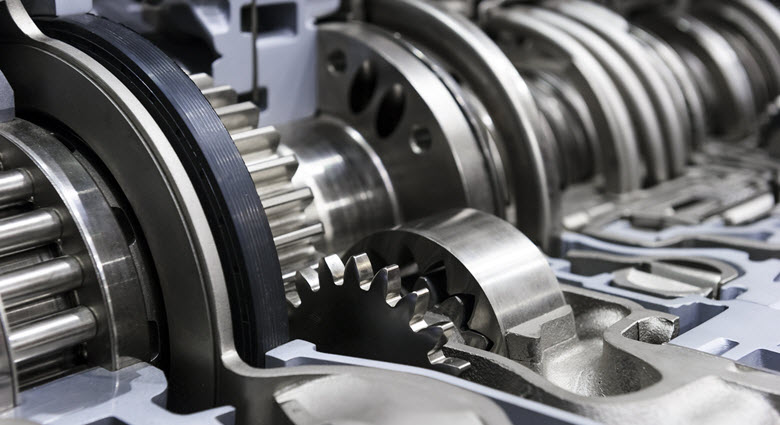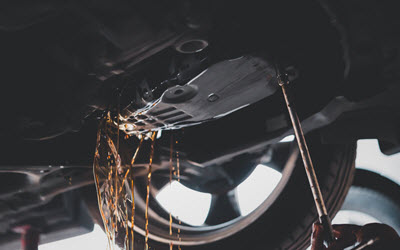Important Transmission Servicing for the Longevity of Your Audi

Transmission service and maintenance can be one of the most important things you do for your Audi. The transmission in your vehicle helps it run efficiently while driving. Improper transmission service and maintenance can even affect your safety and the safety of everyone in your car.
Transmission 101
The transmission in your vehicle is one of the most important and most complex components of your Audi. The purpose of your transmission is to transfer power from the engine to the rest of your vehicle.
The transmission is responsible for controlling your vehicle while also making sure that the power generated by the engine gets to the wheels. The transmission uses the least amount of fuel possible to maximize your Audi’s efficiency when driving without affecting the car negatively.
The function of a vehicle’s transmission can be described in terms of speed. When a car uses a lower gear, such as when it starts from a stoplight or stop sign, the transmission creates more torque or force while using the lowest revolutions per minute (RPMs) as possible to maintain fuel efficiency. The same occurs when you drive on the highway, creating enough torque for the vehicle to move at a higher speed but still conserving fuel.
Types of Transmission
There are two types of transmissions: automatic and manual. Every Audi driver has a preference between the two transmission types, and each has its perks and quirks. Depending on the area you often drive and the characteristics of your commute, one type of transmission may be more beneficial for you than the other.
An automatic transmission is capable of shifting on its own. There are two types of automatic transmissions, the traditional and the dual-clutch automatic transmissions. A traditional automatic transmission uses a torque converter to connect to the engine of the vehicle. A dual-clutch automatic uses a pair of clutches to change the gears.
Drivers might choose an automatic transmission because they can easily drive in heavy traffic, long commutes, or hilly areas. However, these transmissions are not as fuel-efficient as manual transmissions and can be more expensive as they are higher in demand.
A manual transmission requires the driver to shift gears using the stick shift and the clutch to help change the gears of the car. There are many different reasons that someone would choose a manual transmission, including fuel efficiency, price, and better control. It is believed that manual transmissions are also less likely to be stolen. However, manual transmissions are not beneficial if you have a long commute every day as the constant need to change gears, especially during stop-and-go traffic.
The Importance of Proper Transmission Servicing
Think of the transmission of your Audi as the muscular system of your vehicle, with the engine being its heart and the transmission causing movement upon demand. When your car’s transmission is not functioning correctly, it impacts every component of your Audi.
Proper transmission servicing needs to be done for preventative maintenance to avoid costly repairs in the future. For example, transmission fluid should be replaced in a car between every 30,000 to 100,000 miles, and failure to regularly change this fluid could lead to damage.
When the transmission fluid is clean, the engine runs more effectively. However, if the transmission fluid remains dirty, it can build up and lead to trouble shifting, transmission failure, or poor acceleration.
Should you never have your Audi’s transmission serviced, you risk metal shavings contaminating your transmission fluid and limiting the lifespan of your transmission. When a transmission is not maintained correctly, damage can lead to trouble shifting gears, grinding sounds from underneath the car, slipping between gears, and inability to accelerate the vehicle when you press the gas pedal.
Munich West for Your Audi
You should aim to have your Audi  transmission serviced every 30,000 to 60,000 miles to maintain optimum function for a manual transmission and 60,000 to 100,000 miles for an automatic transmission. Continuous servicing of your transmission can be the difference between a repair and a full transmission replacement.
transmission serviced every 30,000 to 60,000 miles to maintain optimum function for a manual transmission and 60,000 to 100,000 miles for an automatic transmission. Continuous servicing of your transmission can be the difference between a repair and a full transmission replacement.
The transmission is an integral part of your Audi, and it should be serviced regularly to avoid costly repairs from lack of maintenance. With locations in Decatur and Atlanta, GA, Munich West will fulfill all your transmission service needs and maintain your Audi’s intricate systems for the life of your vehicle.




